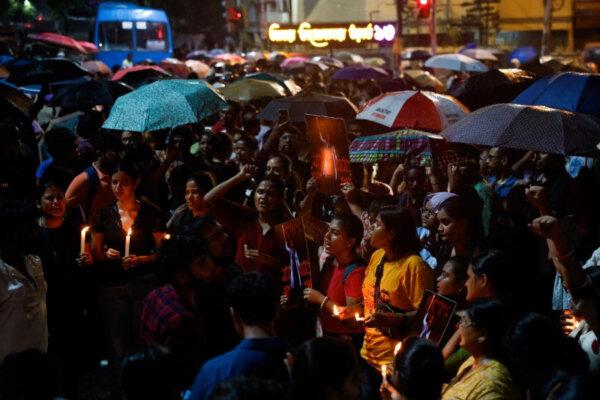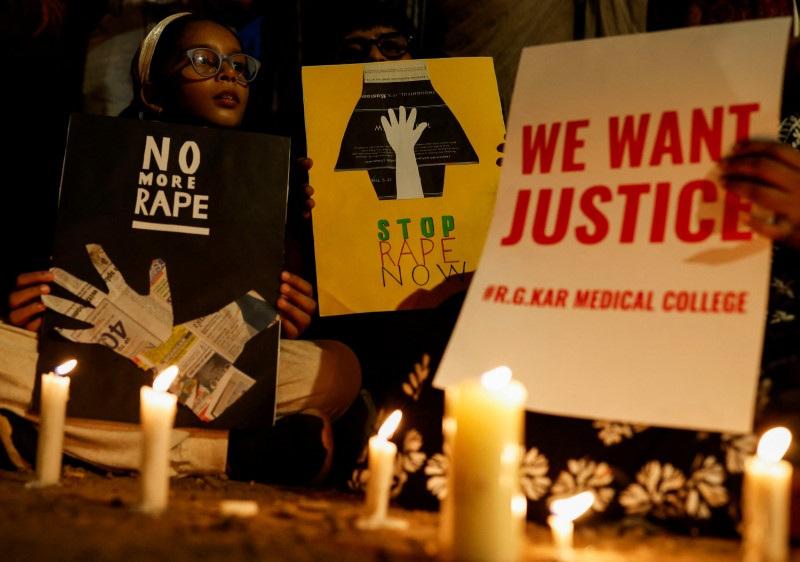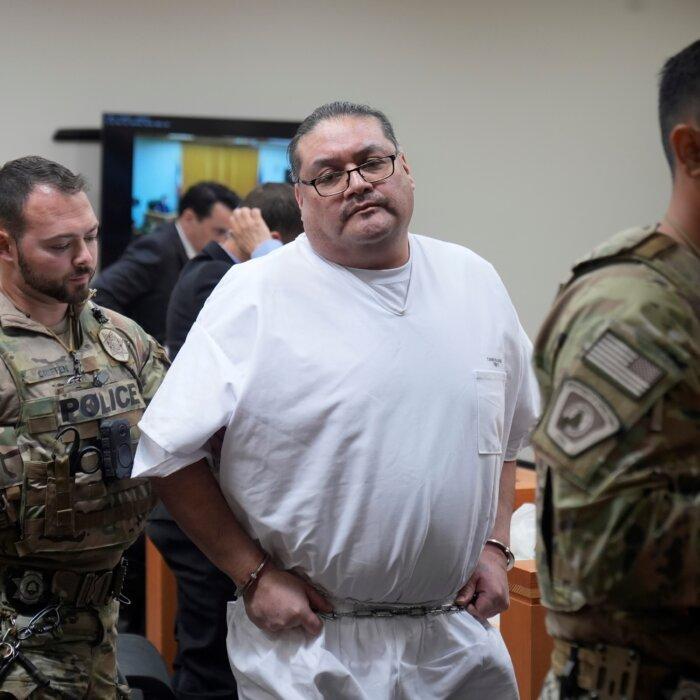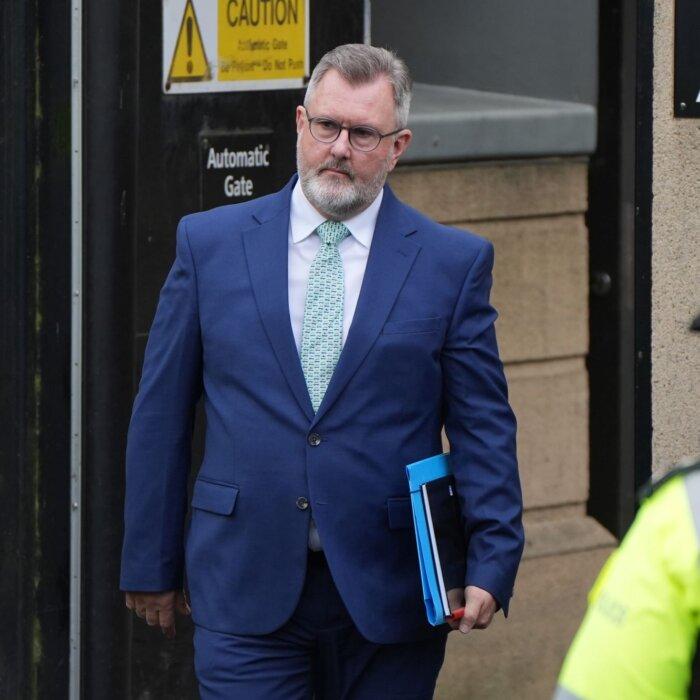Thousands of women marched through a number of Indian cities overnight to demand better safety for women after a trainee doctor was raped and murdered at a hospital in Kolkata.
The 31-year-old medic, who hasn’t been named, was found murdered in a rest area at the R.G. Kar Medical College in Kolkata on Aug. 9. She had fallen asleep after a 36-hour shift and was attacked by an assailant who sexually assaulted and then stabbed her.
A volunteer worker at the hospital has been arrested on suspicion of murder.
‘Reclaim the Night’ Protest
Many of the placards read “reclaim the night”—a theme of the protest—with campaigners claiming that women don’t feel safe after dark in large parts of India.“This horrific incident has once again reminded us that women disproportionately bear the weight of ensuring their own safety,” Bollywood actress Alia Bhatt said in a post on her Instagram page, which is followed by 85 million people.

“As a society, we have to think about the atrocities being committed against our mothers, daughters and sisters,” Indian Prime Minister Narendra Modi said during a speech to mark the 78th anniversary of Indian independence. “There is outrage against this in the country. I can feel this outrage.”
Modi, 73, who has been prime minister since 2014, won another term this year when his BJP (Bharatiya Janata Party) won the general election. While the Aug. 15 marches were largely peaceful, a mob of unidentified men entered the R.G. Kar Medical College in Kolkata and vandalized the emergency department.
Doctors Go on Strike in Protest
Junior doctors mounted strikes earlier this week at several government hospitals in India, and suspended all services, except emergency responses, as part of a protest.“I plead before you, if needed I am ready to touch your feet if that satisfies you, to join work,” Banerjee was quoted in The Times of India appealing to doctors in Kolkata to go back to work. “It’s been five days since you started your protest. No one has stopped you but three people have lost their lives, one of them a child and another a pregnant woman.”
Under Indian law, rape victims and complainants can’t be named, even after death, which means the Kolkata doctor will never be identified.
Doctors in Indian hospitals have long complained of being overworked and underpaid, and about the levels of violence they encounter.
Many medical graduates and doctors from India choose to move abroad for opportunities in safer and more affluent countries such as the UK, Canada, and the United States.
Figures from the National Crime Records Bureau, released last year, showed crimes against women in India rose by 4 percent in 2022.
The doctor’s murder in Kolkata has echoes of a horrific case in 2012, when a 23-year-old student was gang-raped on a bus in New Delhi, causing injuries that led to her death. That incident led to huge protests across India against violence against women.
Four men—Akshay Thakur, Vinay Sharma, Pawan Gupta, and Mukesh Singh—were sentenced to death after being convicted in 2013 and were executed by hanging in March 2020.







